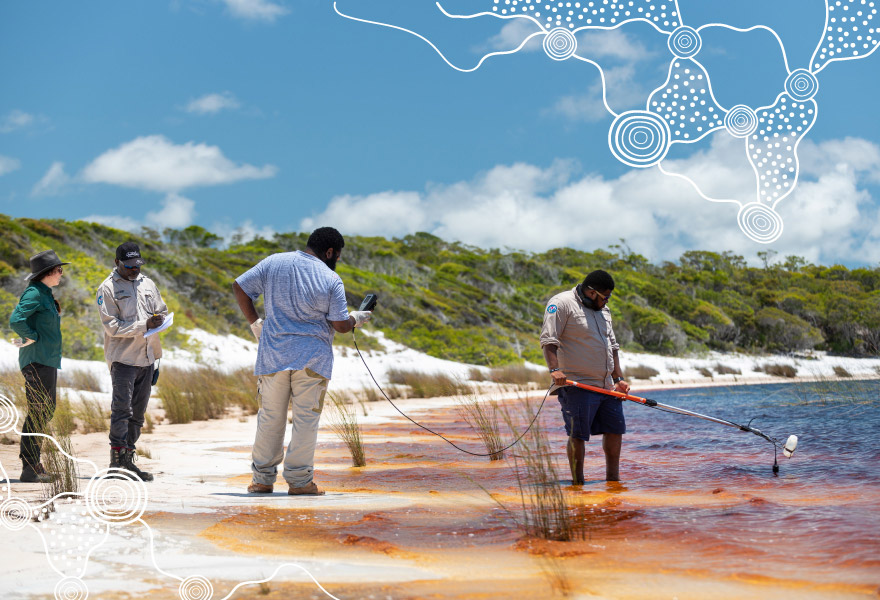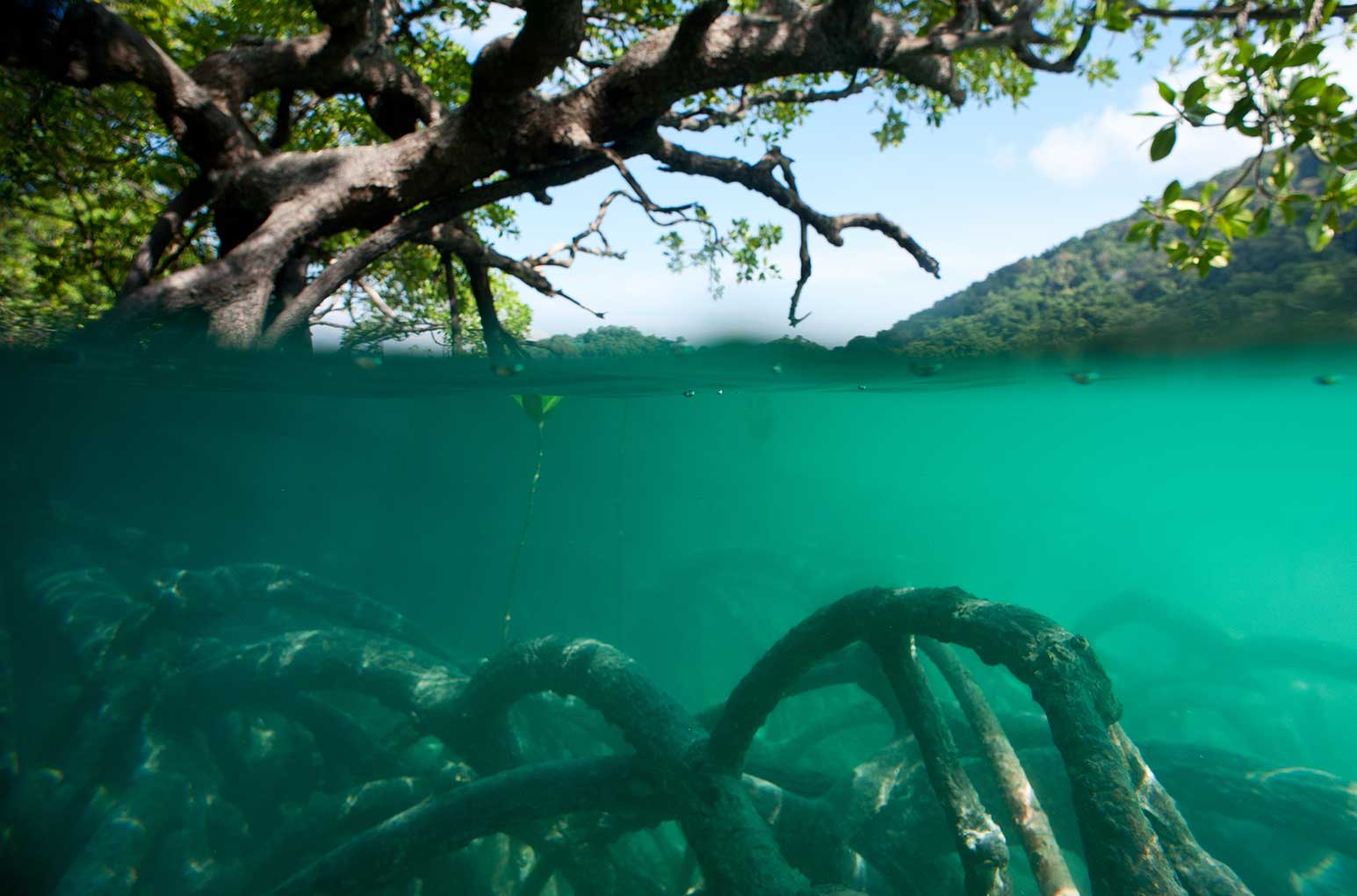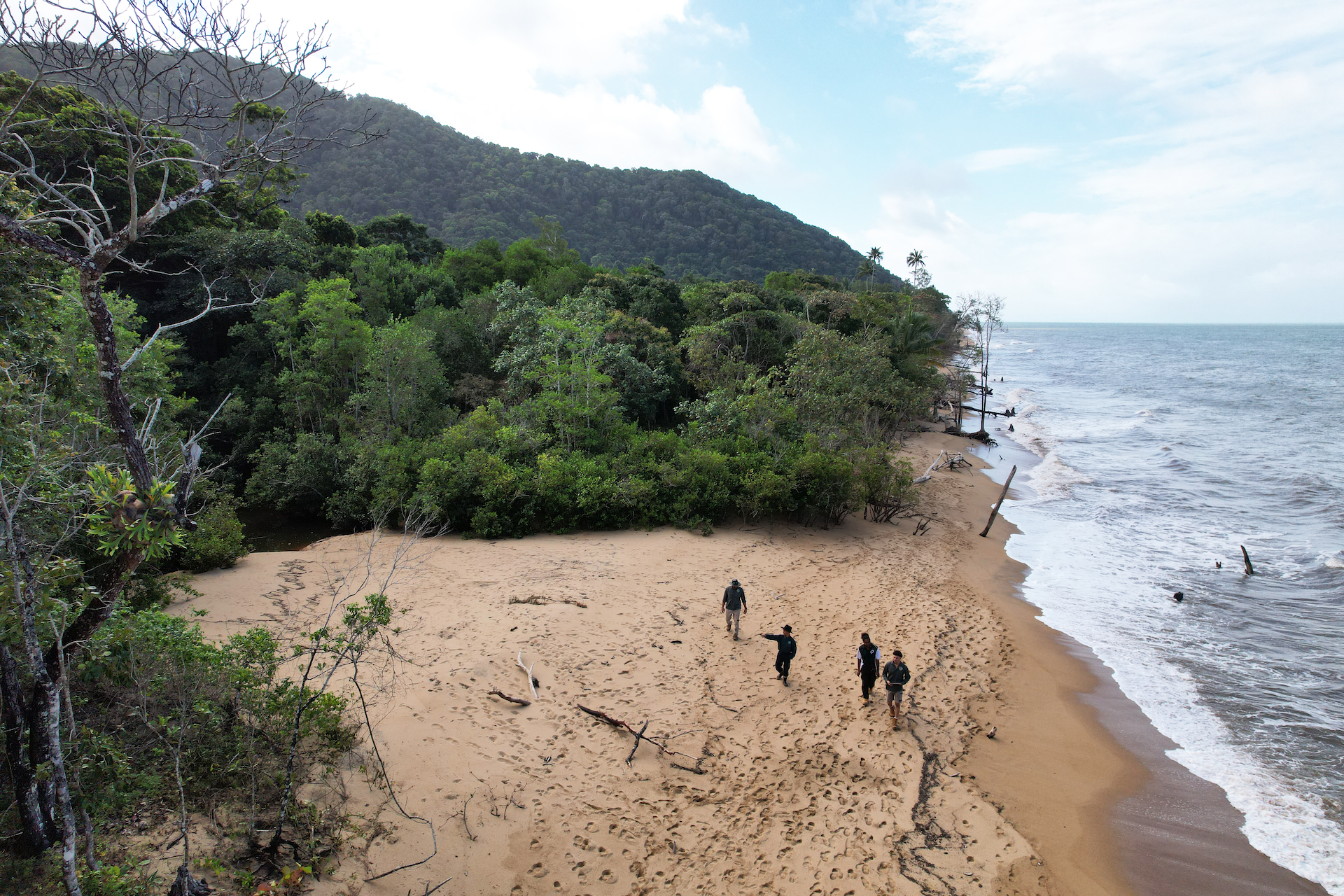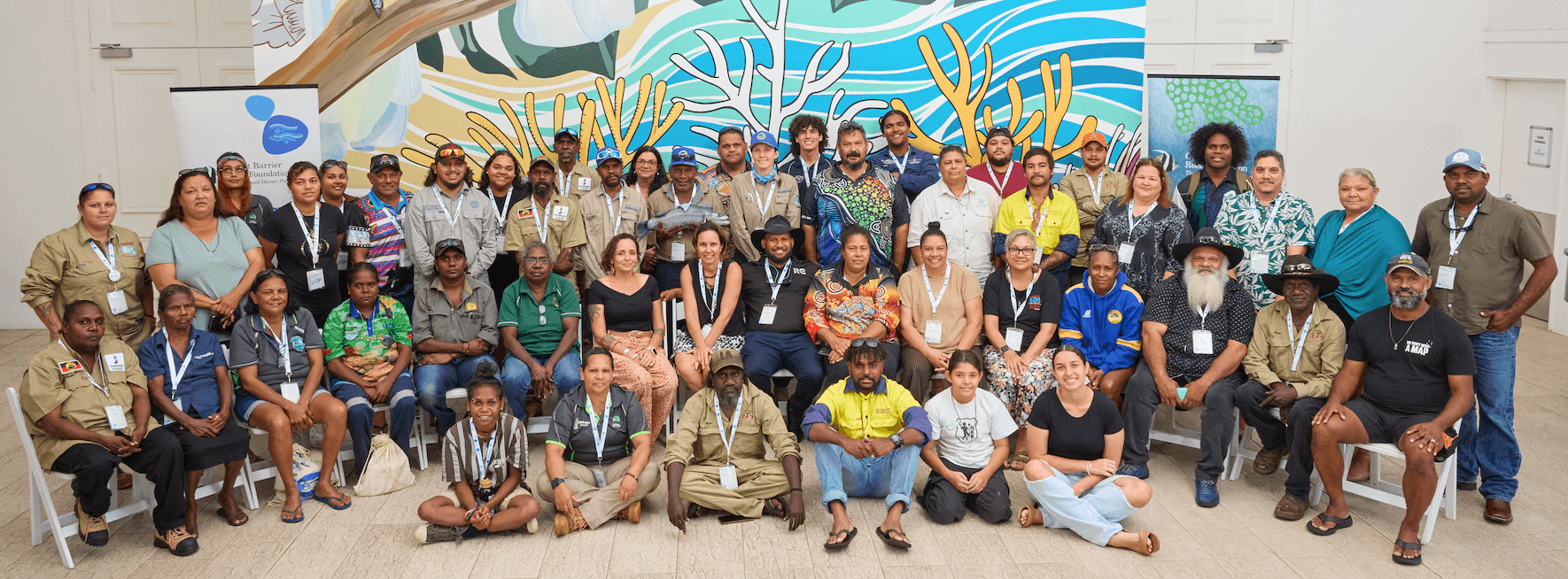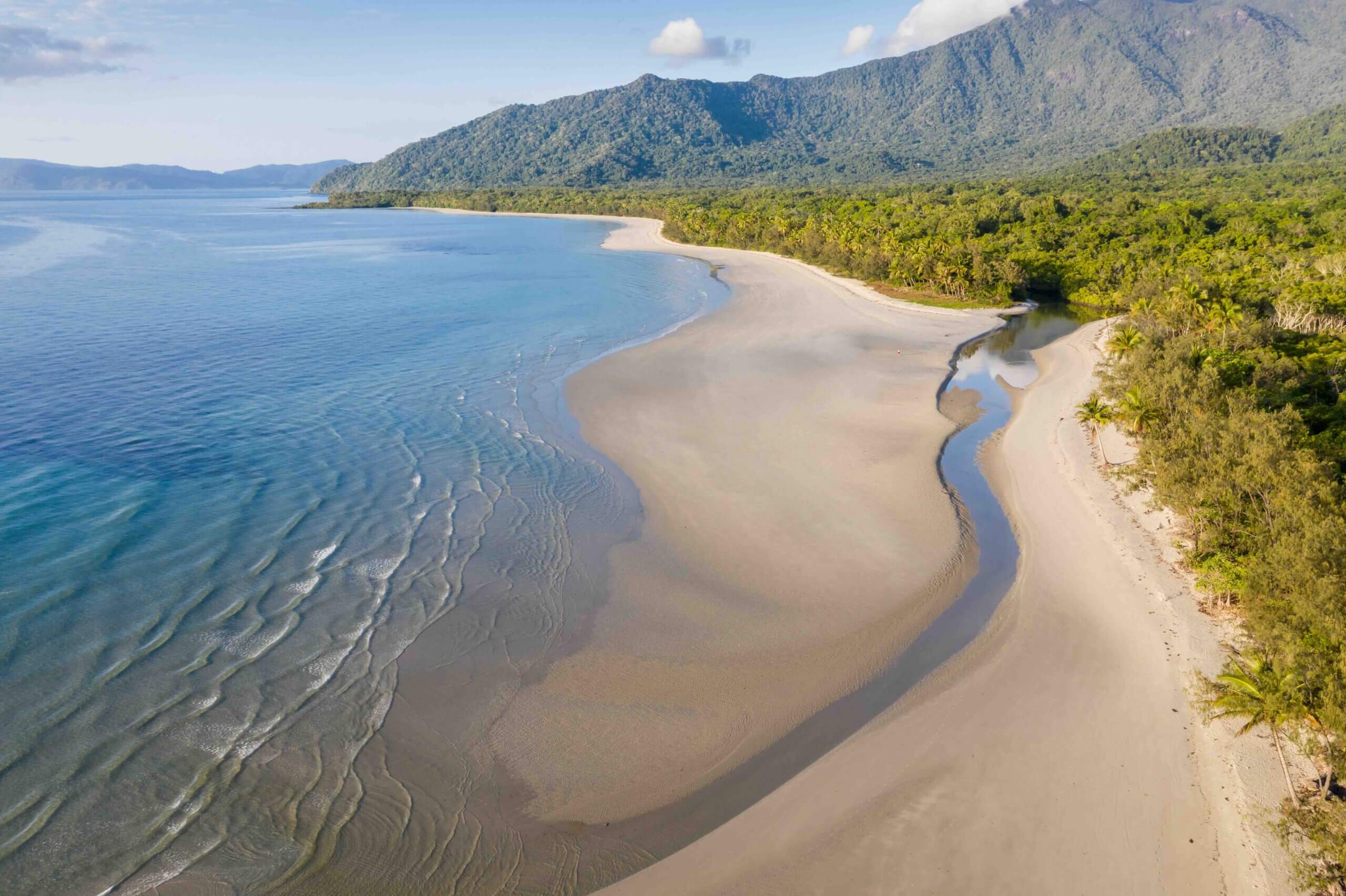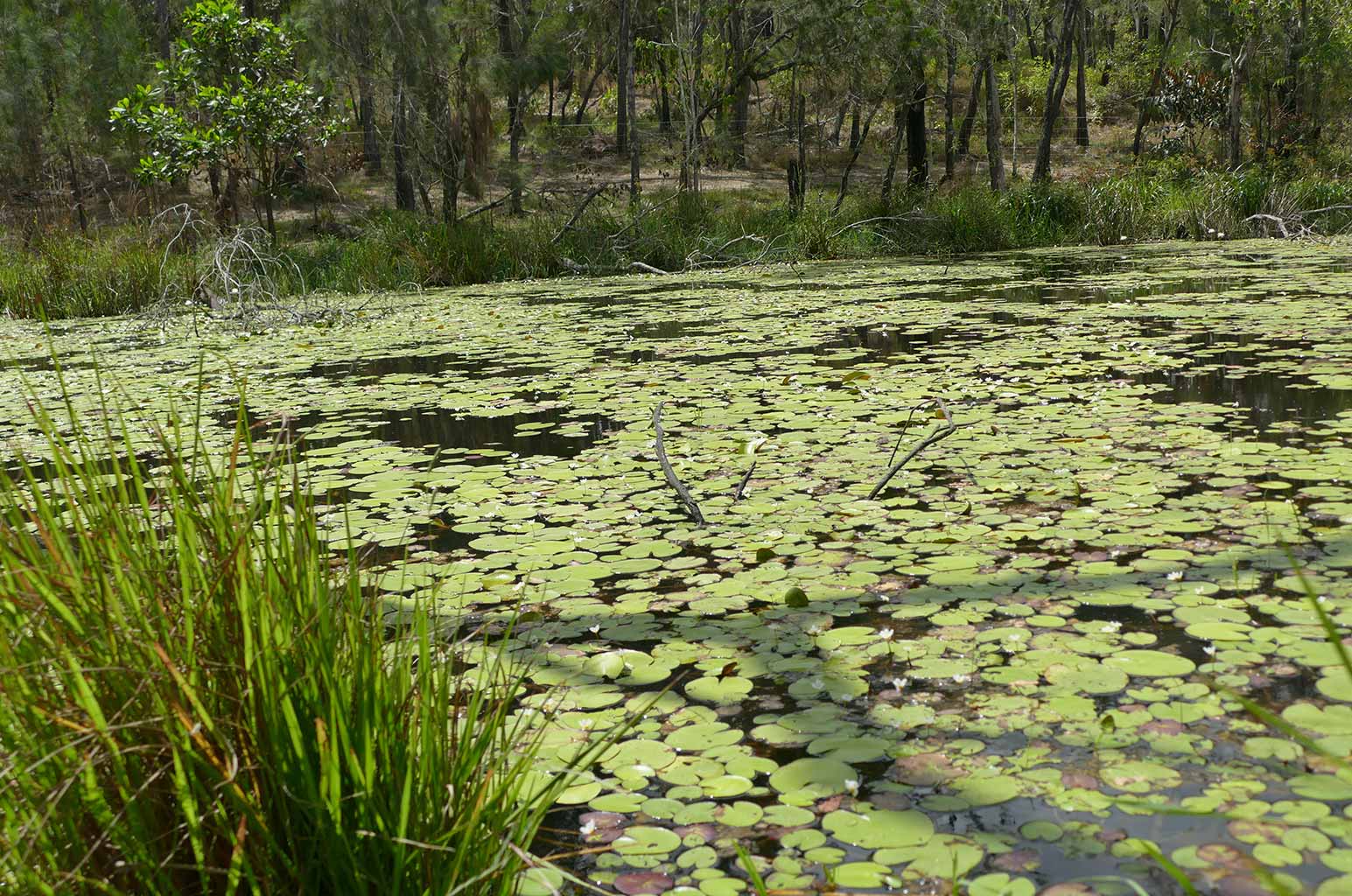
DJABUGAY PEOPLE ARE PROTECTING THEIR STORYWATER PLACES
The Djabugay people are protecting their Storywater places and cultural heritage through community-driven initiatives
Photo by: Djabugay Aboriginal Corporations
Story created in collaboration with Djabugay Aboriginal Corporations.
The traditional lands of the Djabugay people cover a vast area of Far North Queensland and include the Barron River, Rainforest regions and the Barron Gorge National Park in Queensland’s world heritage listed Wet Tropics. The Barron River contains culturally significant “Storyplaces and Storywaters” with incredible significance to the Djabugay people. These landscapes include Djabugay peoples’ lived knowledge, connection across generations and are vital for maintaining people’s health and opportunities for the next generations. However, the Barron River catchment has experienced significant changes and is the most modified catchment in the Wet Tropics region.
Michell Kapteyn, Djabaguy Traditional Owner and Ranger talks about her connection. “To me, healthy water actually means being healthy spiritually. I think about our ancestors and the way our Bulurru, which means our Dreamtime, our stories, the way the Rainbow Serpent shaped our mountains. and our waterways.”
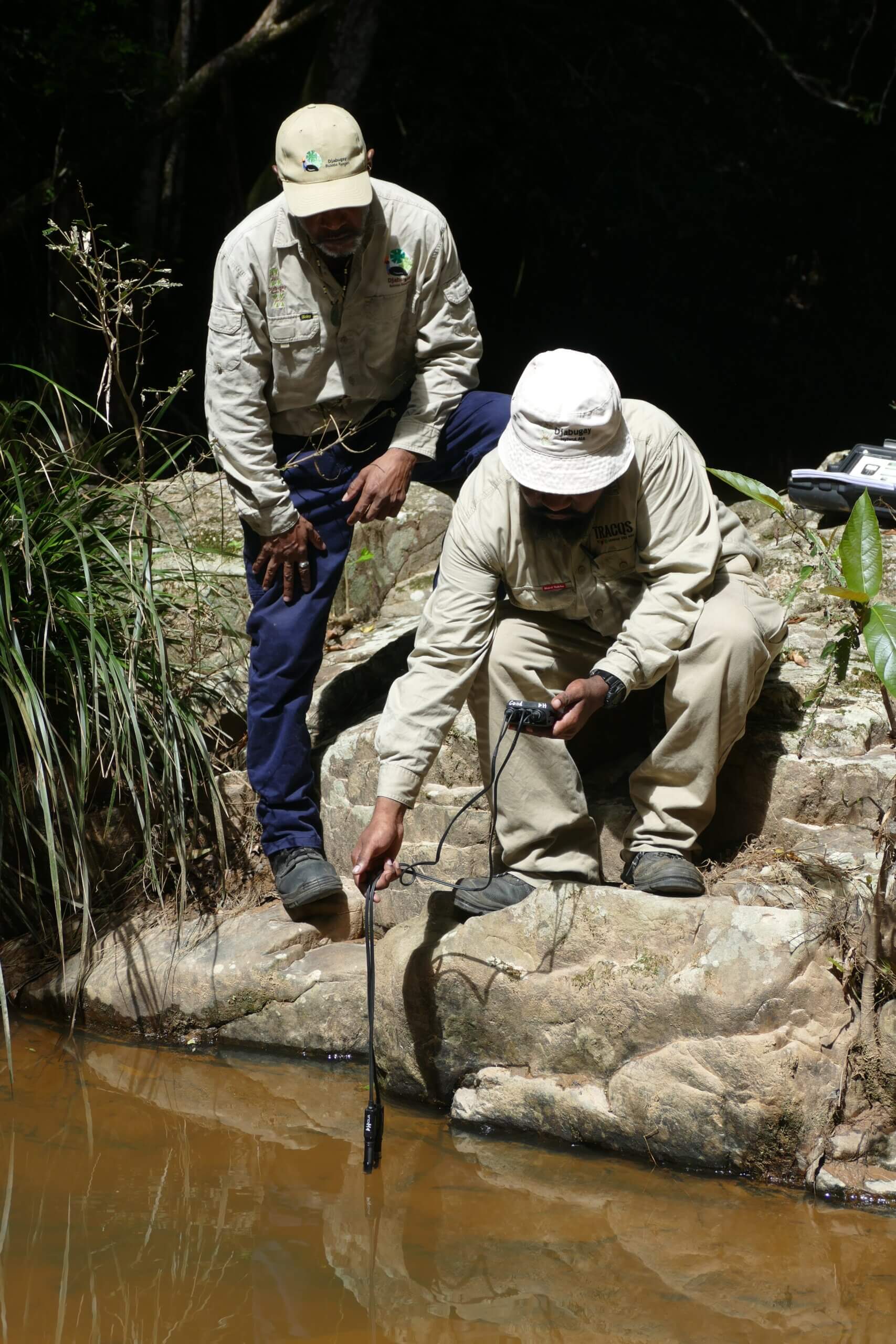
Closing the cultural knowledge gap
Djabugay people identified that there were key knowledge gaps in understanding how to address threats to cultural values, water quality, environmental flows and environmental values from upstream agricultural and urban areas, modification to water flow from the Tinaroo dam, vegetation loss and increased sediment, chemical and nutrient run-off.
The Djabugay Aboriginal Corporations (DAC) developed the “Bana Gurii. Bulmba Gurii. Bama Gurii.” (Healthy Water. Healthy Country. Healthy People.) project through funding from the Great Barrier Reef Foundation’s Healthy Water Grant Program, to help fill these knowledge gaps and enable the Djabugay Rangers to lead the way in managing their own Country.
The “Bana Gurii. Bulmba Gurii. Bama Gurii” project has four key objectives:
- To empower bama to identify, plan and record how they want to care for their Storyplaces.
- To draw on the knowledge of Elders and Traditional Owners to understand exactly what healthy water is and how to make their water healthy again.
- Carry out work on Country that will improve the cultural and environmental health of important Storywater places.
- Ensure Djabugay priorities are recognised and put first.

An important part of the project was The Cultural Interview Program. This involved the Djabugay people speaking with their Elders to understand and record the cultural importance of their Storywater places. From these interviews, a Healthy Water Cultural Knowledge Toolkit was developed to help the Djabugay Rangers protect and restore Storywater places.
Ranger Michell says, “It actually makes us feel very, very proud and we feel that we’re making our Elders very proud too. They can see that we’re passing on the knowledge they taught us to the young ones coming through. So, it’s very rewarding.”
The Rangers have also begun working on Country at key Storywater places. They are managing weeds and monitoring water health and the Kuranda Tree Frog. They are also continuing to focus on developing and leveraging existing relationships with other communities higher up the catchment.
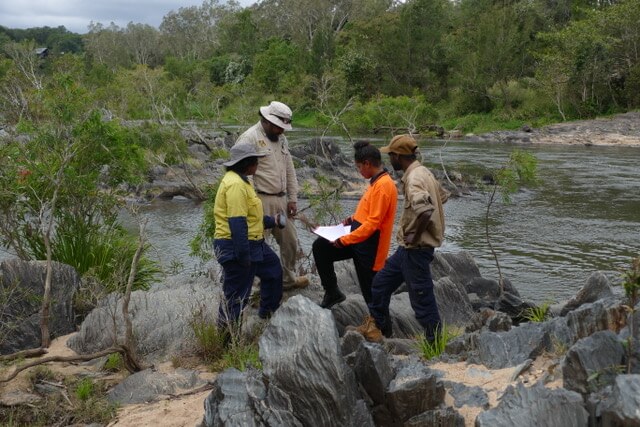
A new chapter for Djabugay Storywater places
Michell continues, “I love being on Country, doing the best we can to get everyone to understand how important it is to look after our land and water so future generations can enjoy it too. When I’m on country I feel one with the Country. You think about how your Elders lived and you think about all the animals and the plants. It’s just very emotional.”
The Djabugay Rangers were able to identify a number of great outcomes as a result of the program. A key achievement was re-energising their connection with Elders which is leading to a better understanding of how they want their Storyplaces protected. The project also led to a greater engagement with their Mob and other neighbouring Mobs working to improve the health of their shared water.
Find out more about the Djabugay Aboriginal Corporations.
